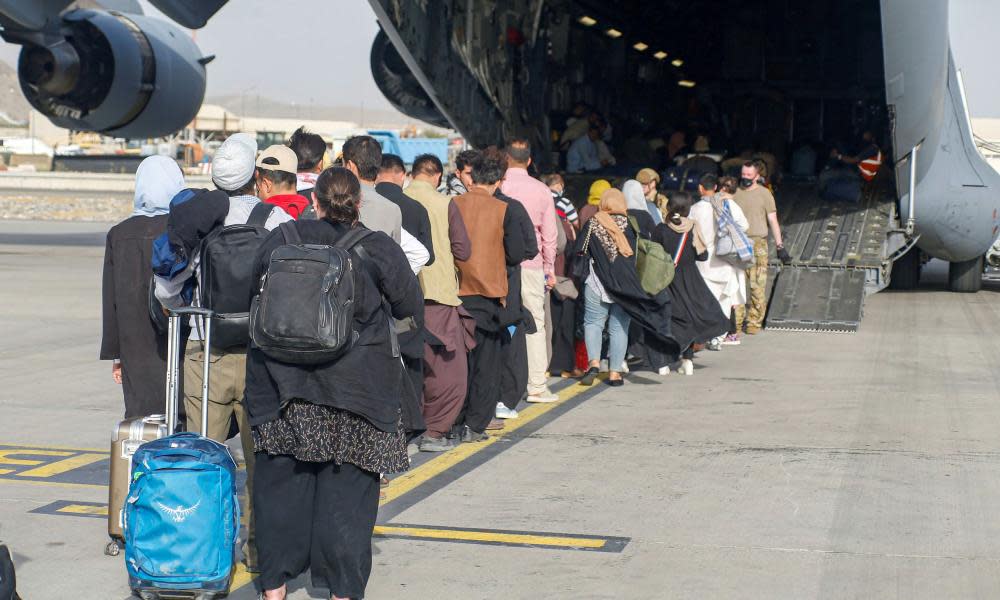Nosedive in UK-US relations is another casualty of Afghanistan’s fall

So much for the special relationship. As the Afghanistan crisis has unfolded, it has precipitated a high-speed deterioration in Anglo-American relations.
What began as a muted disagreement on whether it was right for the US to withdraw militarily has reached the point where UK government sources are openly briefing against President Joe Biden as the situation in Kabul worsens.
There have been days of British complaints that they do not know when Biden will pull the plug on the emergency airlift, and whether he will stick to the current 31 August deadline, despite promises made by the president that the airlift would continue until US citizens were “all out”.
According to a leak to the Sunday Times, Biden took more than 24 hours to participate in a phone call after it was requested by Boris Johnson, the prime minister, early in the week. British ministers and aides briefed, anonymously, to the same paper accusations that Biden “looked gaga” and was “doolally” at a press conference where the president defended his decision to withdraw.
It is a far cry from Britain’s recent Integrated Review of defence and foreign policy, released in March. That confidently asserted that “the United States will remain the UK’s most important strategic ally and partner” where Britain functions as a smaller partner to the most powerful military power on the planet.
What has happened is that the UK has engaged in bickering as the retreat from Kabul suddenly dominates the news, although it is far from clear if there would be this level of Conservative recrimination had Donald Trump – the architect of the strategy – remained as president.
It is tempting to conclude the hostile briefing is cover for an Afghan collapse that no British minister – or strategy document – had warned was likely to come.
Afghanistan is barely mentioned in the 100-page-plus Integrated Review. The country is referred to only twice, one to make a now hollow pledge “to continue to support stability” – suggesting a misreading of the strategic intentions of the new occupant of the White House, who publicly announced the withdrawal from the country only a month later.
Related: The Observer view on the unfolding tragedy in Afghanistan | Observer editorial
One former senior national security insider accuses the UK of being engaged in a “double delusion” where “the military has talked up geo-strategic threats and hence the use of expensive aircraft carriers”, while “the Foreign Office has failed to openly acknowledge the reality of US exhaustion, ennui, with the interventionist Bush project, which dates back to Barack Obama”.
The ex-mandarin argues one of the true strategic threats faced by the UK still comes from Islamist terrorism, particularly if a country like Afghanistan collapses and becomes a haven for extremists, as was the case with Syria a decade ago.
Tackling that does not obviously require the assistance of the UK’s new aircraft carrier, the Queen Elizabeth, which was highlighted by the Ministry of Defence on Sunday as an example of UK-US cooperation. The warship, an emblem of Johnson’s Global Britain, is currently stationed in the far-off Pacific, where it is “building our interoperability with our US allies”, according to its own Twitter feed.
Back in Kabul, the situation around the airport remains fraught: people dying in the crush outside its gates on Saturday as frantic Afghans try desperately to escape. Helping those with a right to come to the west, and conducting the final evacuation of the 6,000-plus troops safeguarding the airport, will require close practical coordination between the UK and the US and others – rather than sniping and recrimination.

 Yahoo News
Yahoo News 
